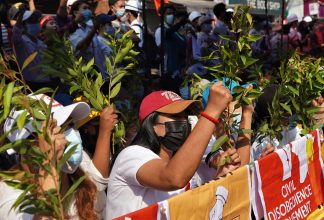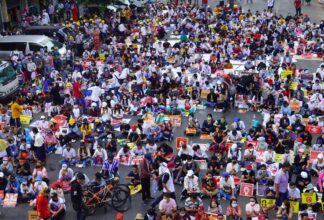Aung San Suu Kyi Freed But Not Free
Civil Rights Defenders welcomes the release of the Burmese Nobel Peace laureate and opposition’s leader Aung San Suu Kyi on Saturday. She was released when her house arrest expired, just days after Burma’s first election in over 20 years, a process that lacked a democratic foundation.
The release of Aung San Suu Kyi is of great significance. However, Sweden and the EU must clearly state that her release – as well as the election last weekend – will not be seen as a step towards an improved human rights situation in the country or towards democracy. In the absence of real improvements, both events must be seen as part of the junta’s attempts to legitimize their rule and to appease international calls for democratic reforms.
Burma’s human rights crisis remains acute. There are still over 2.200 political prisoners in the country. The junta has systematically and with brutal force cracked down against all attempts to democratization initiated by the opposition’s movement. Human rights defenders are subject to arbitrary arrests for their work, and freedom of speech and assembly are severely restricted. Human rights groups have reported on war crimes and crimes against humanity on ethnic minorities.
The 2008 constitution, which provides the basis for the election, does not promote democratic reform. On the contrary, it only risks consolidating the junta’s grip on power. Indeed, their own party, Union Solidarity and Development Party, has announced that it secured the overwhelming majority of seats in parliament.
Aung San Suu Kyi has been the most prominent figure in the Burmese democracy movement since the student uprising in 1988. Her party National League for Democracy won a landslide victory in the 1990 election but the junta denied her the opportunity to form a government. She has spent 15 of the past 21 years under house arrest. It is both crucial and unlikely that her release is unconditional, both formally and in practice.

